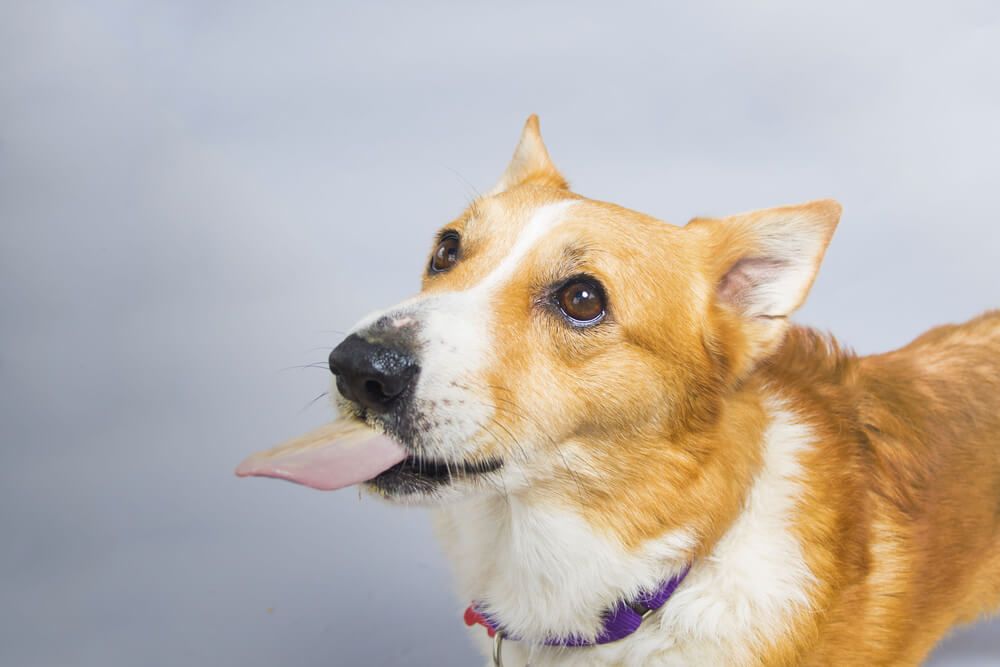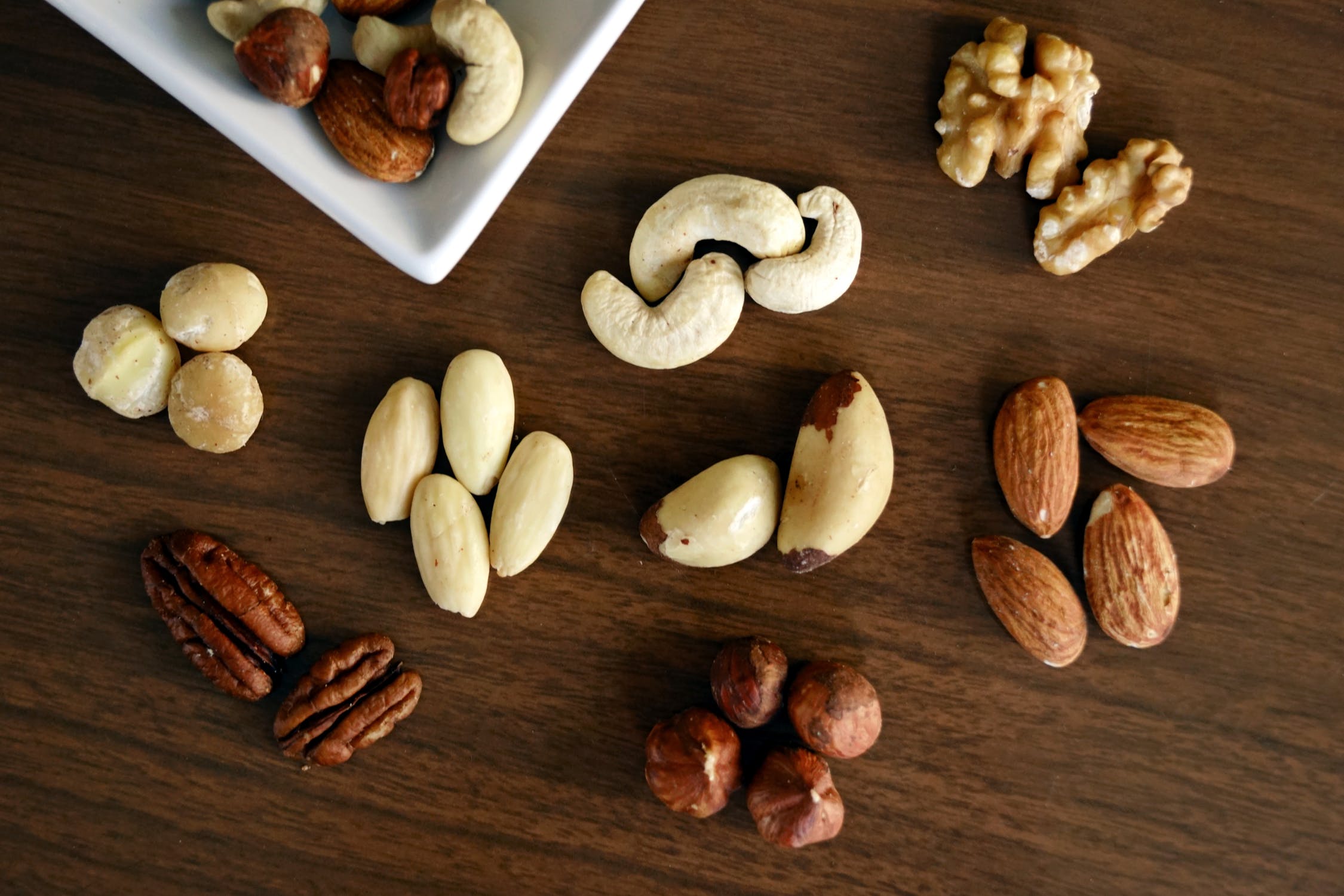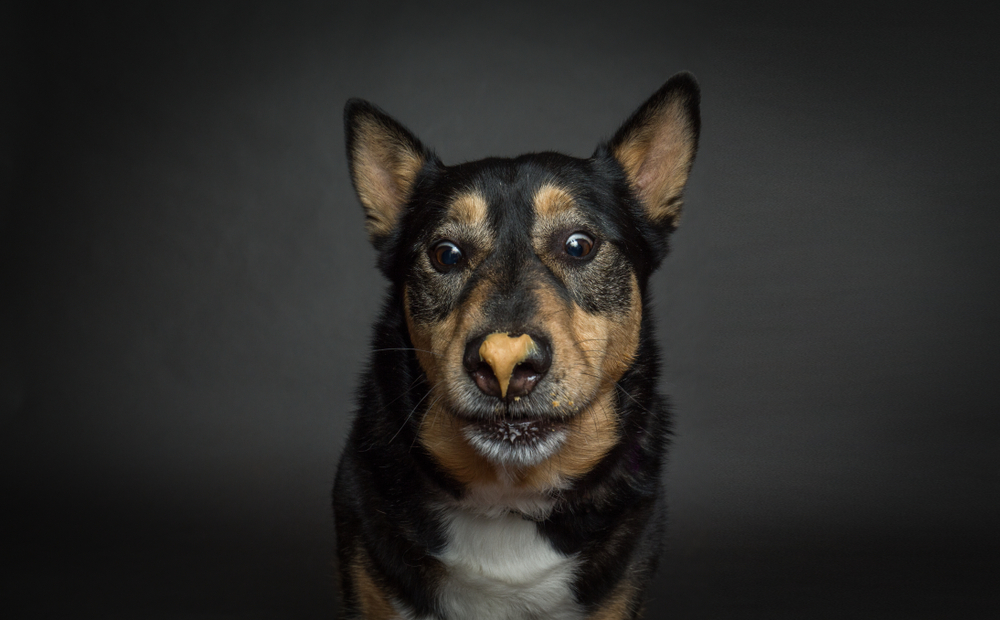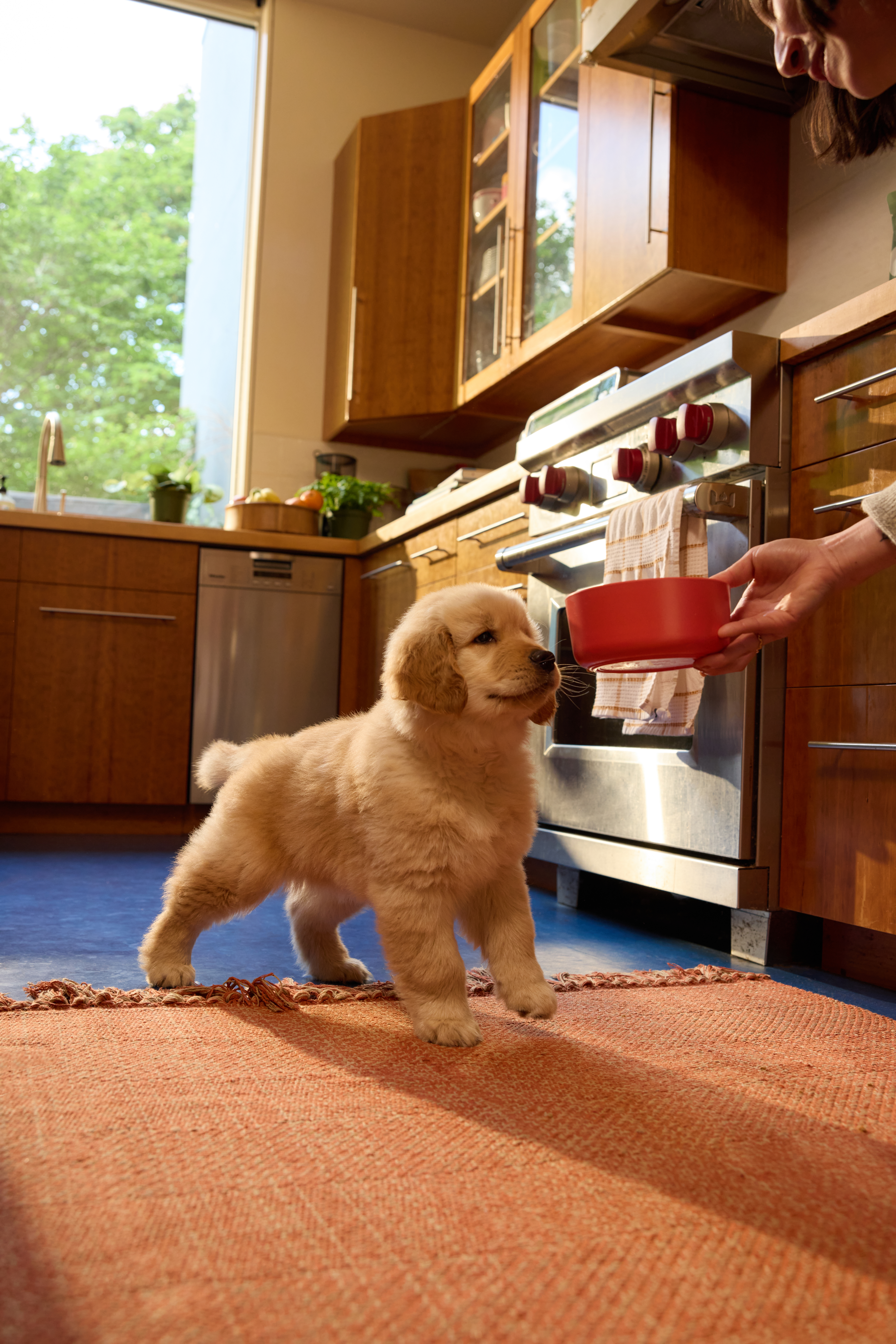Hey Ollie blog readers! We’re offering you an exclusive 60% OFF your starter box! Try now!
Can dogs eat nuts? The short answer: it depends. Some nuts, like plain peanuts or cashews, can be safe for dogs in small amounts. Others, like macadamia nuts or walnuts, can cause serious health problems, even in tiny bites.
Nut butters like peanut butter are usually fine as an occasional treat, but they need to be plain and free of sweeteners like xylitol, which is toxic to dogs.
So, are nuts good for dogs? Nuts can be tasty and offer healthy fats and protein, but they’re also high in calories and can be a choking hazard. Knowing which nuts are safe and how to serve them makes all the difference.
In this guide, I’ll break down which nuts your dog can eat, which to avoid, and how to keep nut treats safe and fun.
Can dogs eat nuts?
Can dogs eat nuts? In short: sometimes, but with caution. Some nuts, like plain peanuts and cashews, can be safe for dogs in small amounts. Others, like macadamia nuts and black walnuts, can be toxic and should always be avoided.
Nuts and legumes like peanuts are naturally high in fat and calories. This means even the safer nuts should be treated as an occasional snack, never a daily habit. Many dog parents love using peanut butter as a training treat or to hide pills, which is fine in moderation as long as it doesn’t contain xylitol, a sugar substitute that’s deadly for dogs.
Nuts do contain healthy fats, protein, and omega-3 fatty acids, which can be good for your dog’s skin and coat when served safely. But too much fat can cause digestive issues like vomiting, diarrhea, or even pancreatitis, a serious and painful inflammation of the pancreas.
So, are nuts good for dogs? They can be, but only in tiny portions. If you decide to give your dog nuts or nut butter, keep it plain and unsalted. Skip chocolate-covered or seasoned nuts, and always supervise your dog to avoid choking.
Quick tip: When in doubt, stick to dog-safe treats like fresh veggies, small bits of plain cooked meat, or vet-approved training treats instead.

Are Nuts Safe For Dogs?
Nuts can be safe for dogs, but not all nuts are created equal. Some nuts are dog-friendly when given plain, unsalted, and in small amounts. Peanuts (which are technically legumes) and cashews are generally safe if they’re raw or dry roasted and free of added salt or flavors.
However, other nuts should always be off the menu. Macadamia nuts, for example, are toxic to dogs and can cause weakness, tremors, or even trouble walking. Black walnuts can contain mold toxins that harm your dog’s liver and nervous system. Pistachios and pecans can grow mold, too, which makes them risky if they’re not fresh and plain.
Another safety issue? Nuts are small and hard, which makes them a choking hazard, especially for small dogs or dogs that gulp food quickly. And high-fat nuts can cause upset stomachs or more serious issues like pancreatitis if eaten too often.
So, are nuts safe for dogs? Some are, when you stick to dog-safe varieties, keep portions tiny, and supervise your pup while they snack. When in doubt, skip the handful of mixed nuts and reach for safer treats instead.
Are Nuts Good For Dogs?
Are nuts good for dogs? The answer depends on the nut, and how much you give. Some nuts, like peanuts and cashews, contain healthy fats, protein, and omega-3s that can help keep your dog’s coat shiny and their skin healthy. A few dog-safe nuts every once in a while can add variety to their snack routine.
But nuts aren’t exactly a superfood for dogs. Most commercial dog foods and fresh recipes already provide the right balance of healthy fats and protein, without the extra calories and risks nuts can bring.
Even dog-safe nuts are very calorie-dense. Just a few can add a lot of fat to your dog’s daily intake. Too much fat can lead to weight gain, tummy troubles, or pancreatitis, which can be dangerous and painful.
So while nuts can be tasty, they’re not really necessary to keep your pup healthy. If you want your dog to get the benefits of healthy fats, stick to a balanced fresh diet like Ollie’s recipes, which use safe, high-quality protein and added omega-3s in just the right amounts, no guesswork needed.
What Nuts Can Dogs Eat?
Here’s a breakdown of which nuts dogs can eat and which can be dangerous or even deadly when your pup nibbles them off the floor.
Almonds: Mild Risk
It’s safe for dogs to eat almonds. However, they can be hard to chew, which can lead to digestive problems or even intestinal damage, especially for smaller dogs.
Cashews: Mild Risk
Dogs can eat cashews in moderation. However, the high fat content is something to watch out for.
Pecans: Mild Risk
Eating a few pecans isn’t dangerous, but because they are especially high in fat, they aren’t particularly good for dogs, either.
Peanuts: Mild Risk
Peanuts and peanut butter are okay for your dog to eat. But when purchasing peanut butter, choose a brand that is low in sugar and salt. Most importantly, read the label and make sure that the peanut butter does not contain xylitol. This sugar substitute is poisonous to dogs.
Pistachios: Mild Risk
Unshelled pistachios are okay for dogs to eat in moderation.
Walnuts: Moderate Risk
The fat content isn’t the only danger for dogs when it comes to walnuts. Their large size makes them difficult to chew and poses a choking hazard, and can block bowel movements.
Hazelnuts: Moderate Risk
If your pup got a hazelnut or two chances are they would be just fine. The reason we include these in the moderate risk category is actually the shape of the hazelnut. It’s round and sized such that it might be a choking hazard for your pup. In smaller dogs, like walnuts they have the potential to cause a bowel obstruction. If your pup does get ahold of a hazelnut, don’t panic but do keep an eye on their breathing and bathroom habits for a while.

What Nuts Can’t dogs eat?
Macadamia Nuts: Very High Risk
Macadamia nuts are one of the most dangerous foods for dogs, even in low quantities. A toxin found in macadamia nuts can make your dog quite sick (causing vomiting or joint swelling), and can even lead to neurological problems, tremors, and temporary paralysis.
Brazil Nuts: High Risk
While the brazil nut is not actually toxic to your pup per se- it is not a good choice either. Brazil nuts are extremely high in fat and therefore should not be fed to to dogs. As we mentioned earlier too much fat can lead to digestive distress and pancreatitis so this is one nut to keep to yourself.
Flavored Nuts: High Risk
Honey-roasted cashews might taste delicious to you, but they could be deadly to your dog. In addition to potentially dehydrating dogs, the salt, oil, and artificial seasoning in flavored nuts may in some cases be poisonous.
Unshelled Nuts: High Risk
Dogs have a difficult time digesting nut shells, and unlike humans they can’t deshell the nuts to get to the good stuff. Unshelled nuts are dangerous for dogs, as the sharp bits of shell can damage their digestive system.
Old Nuts: High Risk
Eating old nuts is very dangerous for dogs due to the possible presence of mold. If your dog eats an old nut found in the back of your cabinet or on the ground from a nut tree, this can be toxic. In the worst cases, ingesting mold can cause dogs to have liver problems or even experience seizures. This is especially well-documented in dogs that have ingested moldy black walnuts.
What to do if your dog eats nuts?
If your dog is not allergic and it was a type of nut that is safe in moderation, you probably won’t need to do anything other than watch their fat and calorie intake for the rest of the day. A few peanuts, a cashew or an almond or two are probably going to be just fine for your pup.
If you notice your pup is having digestive distress after eating nuts, call your vet’s office for further instruction.
The Ollie blog is devoted to helping pet parents lead healthier lives with their pups. If you want to learn more about our fresh, human-grade food, check out MyOllie.com.
Tagged As:

The nutrition your dog needs,
the food they want.

Enjoying our articles? Subscribe our Newsletters and get new articles directly to your inbox
You might also like
17 October 2025
6 MINS READ
Choosing the Best Food to Fuel Your Puppy’s Strong Future
As a new pup parent, you have the responsibility of laying the foundation for your puppy’s future health. The nutritional choices you make during their first year are crucial, directly influenci…
by Ollie Pets
17 October 2025
3 MINS READ
Gentle Human-Grade Solutions for Sensitive Stomachs
Watching your dog suffer from a sensitive stomach is always stressful, and the constant worry about gas, loose stools, or vomiting can be overwhelming. Fortunately, a high-quality, easily digestib…
by Ollie Pets
17 October 2025
5 MINS READ
Choose Fresh: The Best Dog Food for Allergy Relief
As a pup parent, there’s nothing worse than seeing your dog in distress. The constant scratching, irritated skin, or upset stomach that comes with allergies can be heartbreaking. The good news is …
by Ollie Pets







